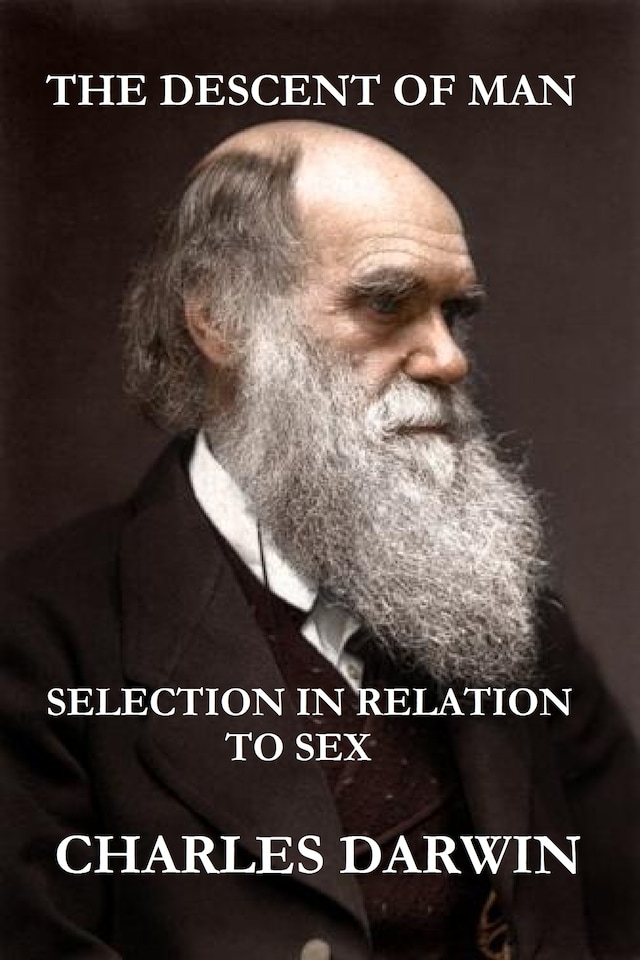
The Descent of Man and Selection in Relation to Sex (The Illustrated, Original Edition, Revised and Augmented)
COMPLETE IN ONE VOLUME
Om bogen
The Descent of Man, and Selection in Relation to Sex is the second edition of a book on evolutionary theory by British naturalist Charles Darwin. The first edition was published in 1871, and the second, enlarged edition in 1874. It followed his 1859 work, The Origin of Species, and is concerned with outlining the application of Darwin's theory to human evolution, and detailing the theory of sexual selection. The book touches on a number of related issues, including evolutionary psychology, evolutionary ethics, differences between human races, differences between human sexes, and the relevance of evolutionary theory to society.
This original edition comes with the following marvelous writings:
PART I.
THE DESCENT OR ORIGIN OF MAN.
CHAPTER I.
ON THE MANNER OF DEVELOPMENT OF MAN FROM SOME LOWER FORM.
Variability of body and mind in man—Inheritance—Causes of variability—Laws of variation the same in man as in the lower animals—Direct action of the conditions of life—Effects of the increased use and disuse of parts—Arrested development—Reversion—Correlated variation—Rate of Increase—Checks to increase—Natural selection—Man the most dominant animal in the world—Importance of his corporeal structure—The causes which have led to his becoming erect—Consequent changes of structure—Decrease in size of the canine teeth—Increased size and altered shape of the skull—Nakedness—Absence of a tail—Defenceless condition of man9
CHAPTER II.
COMPARISON OF THE MENTAL POWERS OF MAN AND THE LOWER ANIMALS.
The difference in mental power between the highest ape and the lowest savage, immense—Certain instincts in common—The emotions—Curiosity—Imitation—Attention—Memory—Imagination—Reason—Progressive improvement—Tools and weapons used by animals—Abstraction, Self-consciousness—Language—Sense of beauty—Belief in God, spiritual agencies, superstitions67
CHAPTER III.
ON THE DEVELOPMENT OF THE INTELLECTUAL AND MORAL FACULTIES DURING PRIMEVAL AND CIVILISED TIMES.
Advancement of the intellectual powers through natural selection—Importance of imitation—Social and moral faculties—Their development within the limits of the same tribe—Natural selection as affecting civilised nations—Evidence that civilised nations were once barbarous113
CHAPTER IV.
ON THE AFFINITIES AND GENEALOGY OF MAN.
Position of man in the animal series—The natural system genealogical—Adaptive characters of slight value—Various small points of resemblance between man and the Quadrumana—Rank of man in the natural system—Birthplace and antiquity of man—Absence of fossil connecting-links—Lower stages in the genealogy of man, as inferred, firstly from his affinities and secondly from his structure—Early androgynous condition of the Vertebrata—Conclusion140
OPEN BOOK TO SEE OTHER CHAPTERS (From Chapter V to Chapter X)
 Charles Darwin
Charles Darwin 432 Sider
432 Sider